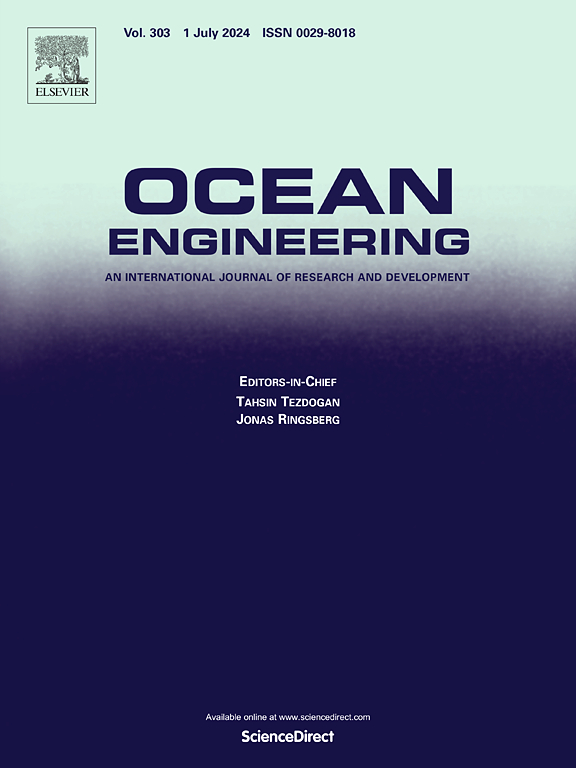基于变分半监督学习的海上浮式系泊系统损伤检测与时序数据增强
IF 4.6
2区 工程技术
Q1 ENGINEERING, CIVIL
引用次数: 0
摘要
系泊系统的退化会严重影响半潜式海上平台的动力性和稳定性。由于损坏事件发生频率低且难以记录,通过数据驱动方法识别系泊系统的结构完整性问题具有挑战性。为了应对这些挑战,本研究提出了时间序列变量半监督学习(TSVSSL)框架,该框架通过利用无标签数据进行损坏检测,有效地弥合了监督学习与非监督学习之间的差距。所提出的框架具有独特的训练程序,其中编码器-解码器和分类器组件是同时训练的。这一过程产生了一个聚类良好的潜在表示,可增强损伤检测并支持特定类别的人工数据生成。一项使用 5 兆瓦半潜式 FOWT 在不同海洋条件下的模拟响应进行的数值研究表明,所提出的框架在损伤检测方面的表现优于现有的深度学习方法,在准确度、精确度、召回率和 F1 分数方面都更胜一筹。此外,还引入了拒绝采样技术,以有效生成与实际时间序列位移响应密切相关的人工数据。所提框架的新颖之处在于它同时关注损伤检测和人工数据生成,这标志着数据驱动的系泊系统评估取得了重大进展。本文章由计算机程序翻译,如有差异,请以英文原文为准。
Integrated damage detection and time-series data augmentation for floating offshore mooring systems via variational semi-supervised learning
The dynamics and stability of the semi-submersible offshore platforms are significantly impacted by the degradation of the mooring system. Identifying structural integrity issues in mooring systems through a data-driven approach is challenging due to the infrequency of damage events and the difficulties in recording them. To address these challenges, this study proposes the Time-Series Variational Semi-Supervised Learning (TSVSSL) framework, which effectively bridges the gap between supervised and unsupervised learning by leveraging unlabelled data for damage detection. The proposed framework features a distinctive training procedure in which the encoder-decoder and classifier components are trained concurrently. This process produces a well-clustered latent representation that enhances damage detection and supports class-specific artificial data generation. A numerical study using simulated responses of a 5 MW semi-submersible FOWT under varying metocean conditions demonstrated that the proposed framework outperformed existing deep learning methods in damage detection, achieving superior accuracy, precision, recall, and F1 score. Further, a rejection sampling technique is also introduced to effectively generates artificial data that closely aligns with actual time series displacement response. The novelty of the proposed framework lies in its dual focus on damage detection and artificial data generation marking a significant advancement in the data-driven assessment of mooring systems.
求助全文
通过发布文献求助,成功后即可免费获取论文全文。
去求助
来源期刊

Ocean Engineering
工程技术-工程:大洋
CiteScore
7.30
自引率
34.00%
发文量
2379
审稿时长
8.1 months
期刊介绍:
Ocean Engineering provides a medium for the publication of original research and development work in the field of ocean engineering. Ocean Engineering seeks papers in the following topics.
 求助内容:
求助内容: 应助结果提醒方式:
应助结果提醒方式:


